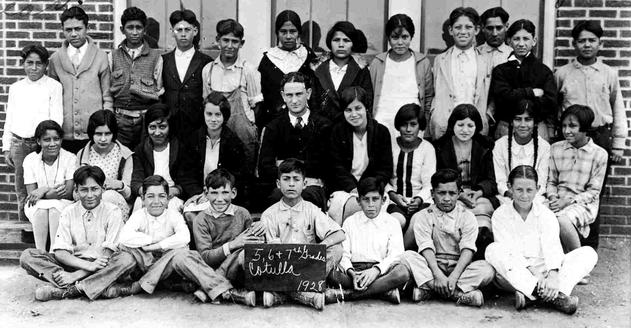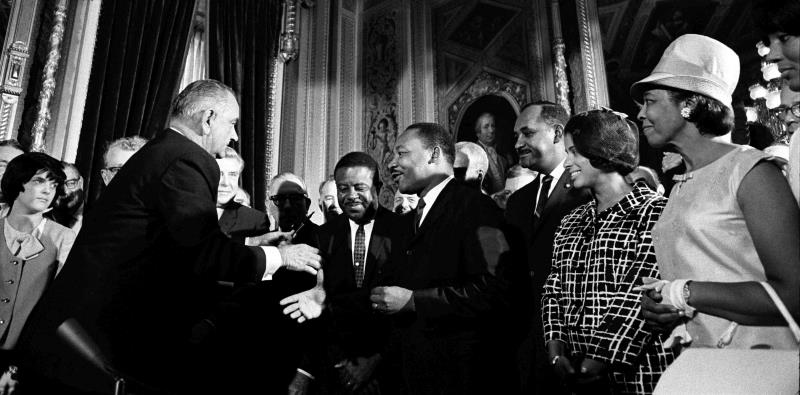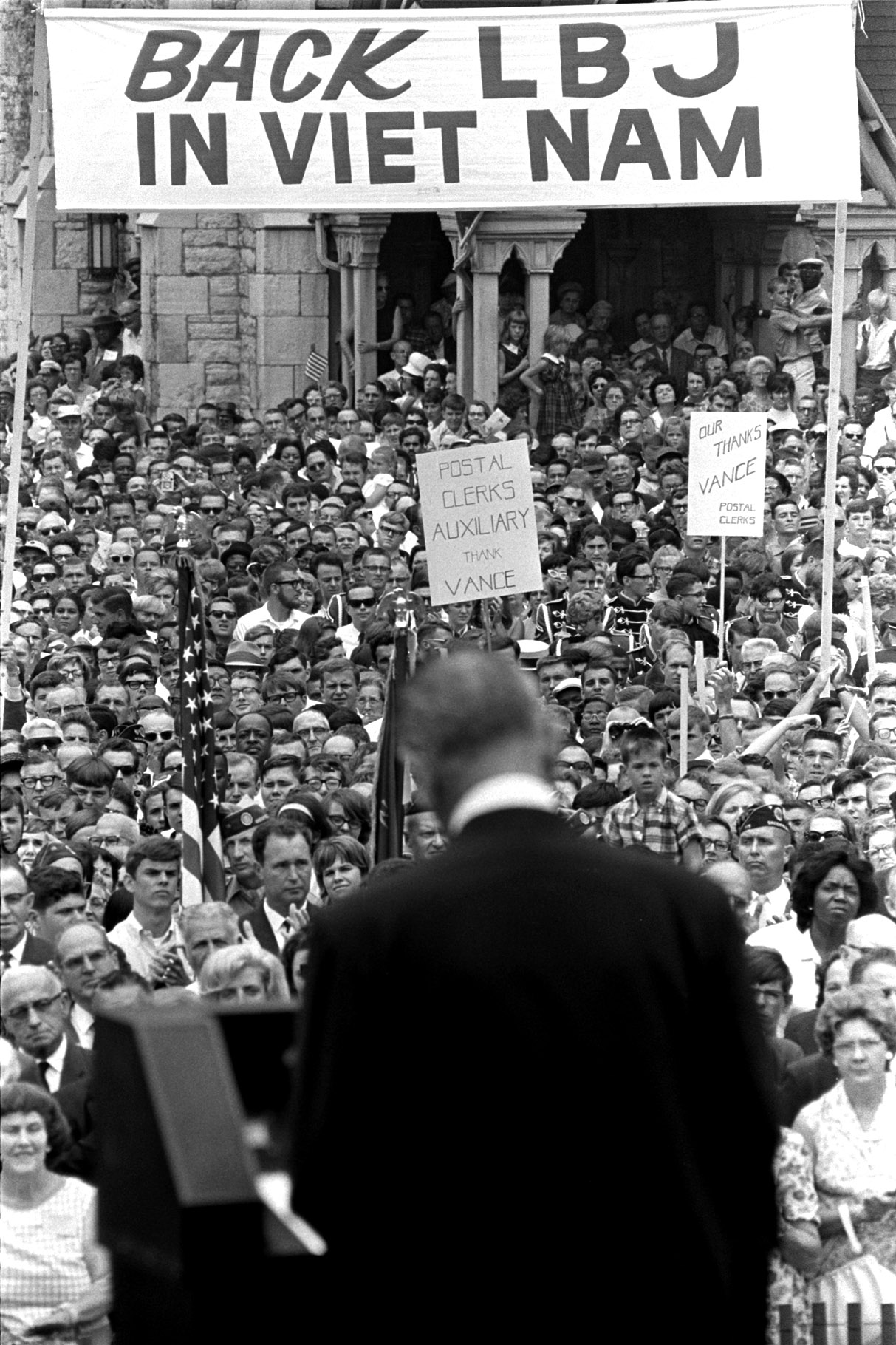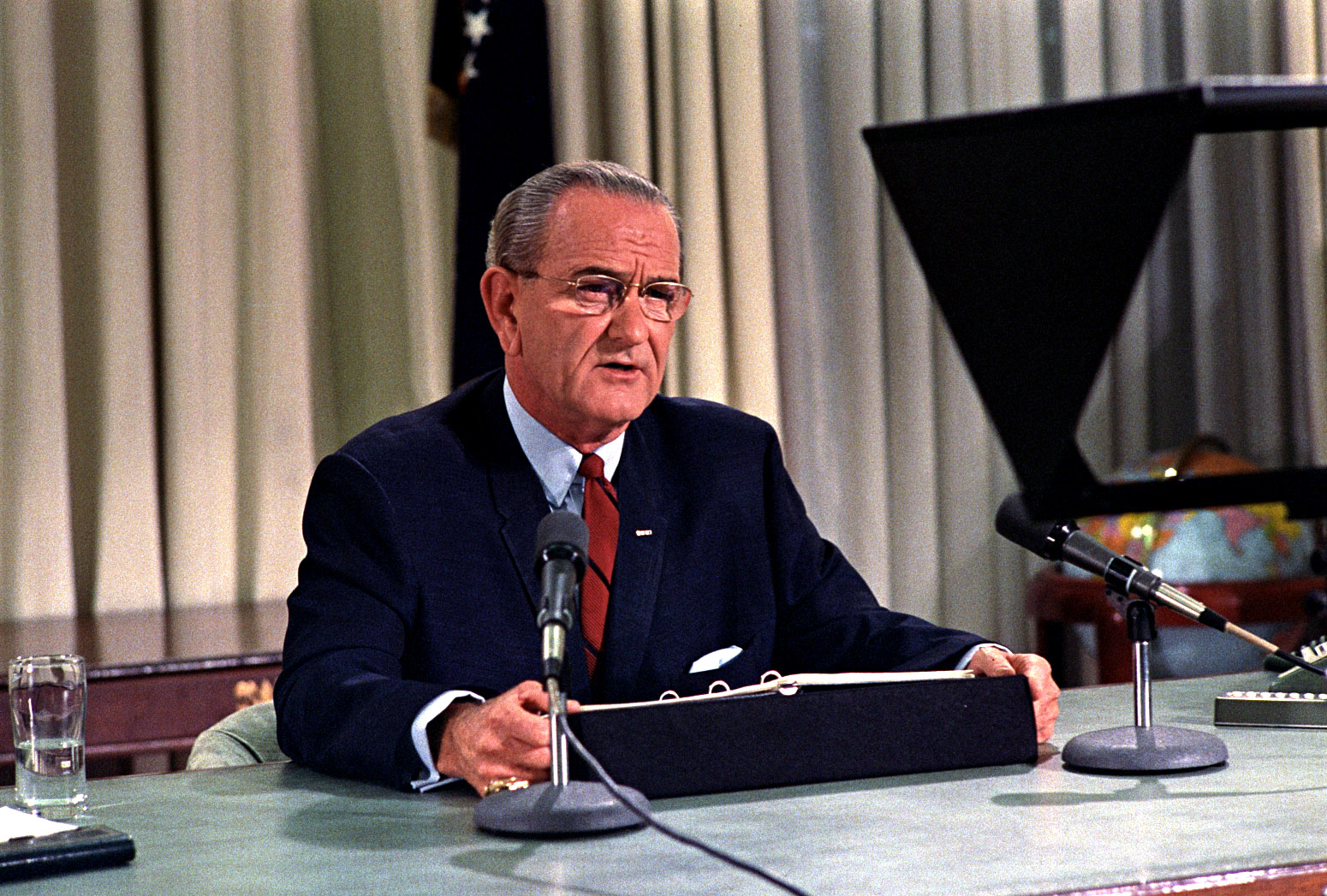In the 1940s FDR’s presidential theme was the “New Deal.” His successors, all of them his protégés, would offer similar themes with their own unique twist. Harry Truman had the “Fair Deal.” John Kennedy, seeking a more cutting edge theme for a new generation, chose the “New Frontier.” Lyndon Baines Johnson, the man of a thousand personalities and a Titanic sized ego to fuel them all, chose “The Great Society” as the cornerstone to his presidency. Like a giant, Texas-sized umbrella, the Great Society would provide sanctuary for even the most meager of Americans.
LBJ was a heavyweight amongst heavyweights in the political arena. He could use honey-coated flattery or chest-slapping intimidation to get his point across to friend or foe. Former Texas governor and longtime LBJ confidant John Connally described the Johnson he knew:
The Great Society
There is no adjective in the dictionary to describe him. He was
cruel and kind, generous and greedy, sensitive and insensitive,
crafty and naïve, ruthless and thoughtful, simple in many ways yet
extremely complex, caring and totally not caring...he knew how to
use people in politics in a way nobody else could that I know of.
The End – Seven months after the Detroit Riot, Johnson announces to a national TV audience that he will not seek another term as president. Despite his critics, no president since Lincoln had done more to help blacks improve their lot, yet all the riots happened on his watch. Had previous presidents pushed civil rights legislation as hard as Johnson, the catastrophic chapter of the 1960s might have been rewritten. The Great Rebellion in Detroit, LBJ’s Model City, was perhaps the last straw.
A young LBJ in his teaching days surrounded by his students. His experience of teaching underprivileged minorities endowed him with a lifelong desire to raise the destitute out of the yoke of poverty. “I could never forget seeing the disappointment in their eyes and seeing the quizzical expression on their faces when they had to come to school, most of them without breakfast, most of them hungry. You never forget what poverty and hatred can do when you see its scars on the face of a young child.”
July 2, 1964 - Johnson congratulates Dr. King after signing the Civil Rights Act. Two weeks later Harlem rioted. In August of 1965 Johnson signed the Voting Rights Act. Three days later the Watts section of Los Angeles erupted in anger. The flame of rebellion was sweeping the country and not even Johnson’s incredible political skills could put it out.
Johnson, like King, tried to stave off the approaching riots by passing civil rights legislation as the racial tensions across the country were simmering just below the flash point. This placed Johnson in a precarious position. The political right cautioned him to slow down his pace on civil rights as the country wasn’t quite ready for mass change. King demanded he speed up as blacks had been told for decades to wait, be patient, and he feared they would listen no more.
The Watts Riot of 1965 brought the civil rights movement to a screeching halt. Televised across the country, America was shown hordes of blacks looting stores and a pall of black smoke from arsonists’ fires hovering menacingly over Los Angeles. Whites who were previously sympathetic towards civil rights after Birmingham quickly changed their tune and the country became as polarized as ever. Johnson was stunned. He had tried hard to set things right and was at a total loss to explain why the riots were occurring just as headway was finally being made on civil rights.
The Monster of Vietnam
We will never know all the murky reasons why we got involved in Vietnam but one thing is for certain: the Vietnam War had a stranglehold on LBJ's Great Society that it would never relinquish. At one point we were
spending $2 billion a month in Vietnam and, as the riots began sweeping the country, a hawkish Congress viewed pouring more money into the rebellious cities as a reward for rioting. By 1966 Congress began to put the brakes on the Great Society programs and funneled its considerable resources into Vietnam.



